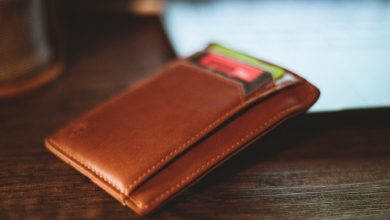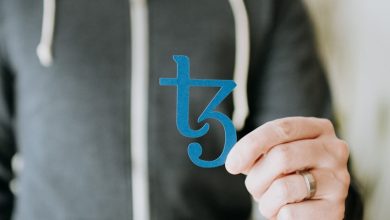Wallet Security Tips: Keeping Your Assets Safe

- The importance of protecting your digital assets
- Common threats to wallet security
- Best practices for securing your wallet
- Choosing the right wallet for maximum security
- How to create a strong password for your wallet
- What to do if your wallet is compromised
The importance of protecting your digital assets
It is crucial to underscore the significance of safeguarding your digital assets in today’s technologically advanced world. With the rise of cyber threats and hacking incidents, ensuring the security of your wallet and assets has never been more important.
By taking proactive measures to protect your digital assets, you can mitigate the risks of unauthorized access and potential loss. This includes implementing strong passwords, enabling two-factor authentication, and keeping your private keys secure.
Furthermore, staying informed about the latest security practices and being vigilant against phishing scams and malware attacks can go a long way in safeguarding your assets. Remember that prevention is always better than cure when it comes to protecting your digital wealth.
Common threats to wallet security
There are several common threats that can compromise the security of your wallet and put your assets at risk. It is important to be aware of these potential dangers in order to take the necessary precautions to protect your funds. Some of the most prevalent threats to wallet security include:
- Malware: Malicious software can infect your device and steal your wallet information, such as private keys or seed phrases.
- Phishing: Scammers may try to trick you into revealing your wallet credentials through fake websites or emails.
- Physical theft: If someone gains access to your physical wallet or storage device, they can easily steal your assets.
- Weak passwords: Using easy-to-guess passwords can make it easier for hackers to access your wallet.
- Unsecure networks: Connecting to public Wi-Fi networks or other unsecure connections can expose your wallet to potential attacks.
By being vigilant and implementing strong security measures, you can reduce the risk of falling victim to these common threats and keep your assets safe and secure.
Best practices for securing your wallet
When it comes to securing your wallet, there are several best practices that you should follow to keep your assets safe. By taking the necessary precautions, you can minimize the risk of theft or unauthorized access to your funds. Here are some tips to help you protect your wallet:
- Use a strong password: Make sure to use a unique and complex password for your wallet that includes a combination of letters, numbers, and special characters.
- Enable two-factor authentication: Two-factor authentication adds an extra layer of security by requiring a second form of verification, such as a text message code or fingerprint scan, to access your wallet.
- Keep your software up to date: Regularly update your wallet software to ensure that you have the latest security patches and features.
- Backup your wallet: Create a backup of your wallet and store it in a secure location, such as a safe deposit box or encrypted USB drive, to protect against data loss.
- Avoid public Wi-Fi: Avoid accessing your wallet on public Wi-Fi networks, as they may not be secure and could expose your sensitive information to hackers.
By following these best practices, you can help ensure that your wallet remains secure and your assets are protected from unauthorized access. It’s important to stay vigilant and take proactive steps to safeguard your funds in an increasingly digital world.
Choosing the right wallet for maximum security
When it comes to safeguarding your digital assets, choosing the right wallet is crucial. There are various types of wallets available in the market, each with its own level of security features. It is essential to opt for a wallet that provides maximum security to protect your funds from potential threats.
One option to consider is a hardware wallet, which is a physical device that stores your cryptocurrency offline. This type of wallet is considered one of the most secure options available, as it is not connected to the internet, making it less vulnerable to hacking attempts. Hardware wallets also typically require a PIN or password to access your funds, adding an extra layer of security.
Another option is a paper wallet, which involves printing out your public and private keys on a piece of paper. While paper wallets are secure from online threats, they are susceptible to physical damage or loss. It is crucial to store your paper wallet in a safe and secure location to prevent any unauthorized access.
For those who prefer a more convenient option, a mobile or desktop wallet may be suitable. These wallets are software-based and can be accessed from your smartphone or computer. While they offer ease of use, they are more vulnerable to online attacks compared to hardware wallets. It is essential to choose a reputable wallet provider and enable additional security features such as two-factor authentication to enhance the security of your funds.
In conclusion, selecting the right wallet is essential for maximizing the security of your assets. Whether you opt for a hardware wallet, paper wallet, or mobile/desktop wallet, it is crucial to prioritize security features to safeguard your funds effectively. By taking proactive measures to secure your wallet, you can minimize the risk of unauthorized access and protect your digital assets from potential threats.
How to create a strong password for your wallet
Creating a strong password for your wallet is crucial in ensuring the security of your assets. When choosing a password, it is important to follow certain guidelines to make it as secure as possible. One of the best practices is to use a combination of uppercase and lowercase letters, numbers, and special characters. This will make it more difficult for hackers to crack your password.
It is also recommended to avoid using easily guessable information such as your name, birthdate, or common words. Instead, opt for a password that is unique and unrelated to any personal information. Additionally, refrain from using the same password for multiple accounts, as this can increase the risk of a security breach.
Another tip for creating a strong password is to make it at least 12 characters long. The longer the password, the harder it will be for cybercriminals to access your wallet. Consider using a passphrase or a combination of random words to increase the complexity of your password.
Remember to regularly update your password to further enhance security. Changing your password every few months can help prevent unauthorized access to your wallet. By following these tips, you can create a strong and secure password that will help keep your assets safe.
What to do if your wallet is compromised
If you suspect that your wallet has been compromised, it is crucial to act quickly to protect your assets. Here are some steps you can take to address the situation:
First, **block** all your credit and debit cards to **prevent** any unauthorized transactions. Contact your bank or card issuer immediately to report the issue and request new cards.
Next, **notify** the authorities by filing a police report. This will **help** document the incident and may **assist** in recovering any stolen funds.
It is also important to **monitor** your credit report for any suspicious activity. **Regularly** checking your credit report can **help** you catch any fraudulent activity early on.
Consider **changing** all your passwords and PINs to **prevent** further unauthorized access to your accounts. **Choose** strong, unique passwords and enable two-factor authentication whenever possible.
Finally, **keep** a close eye on your financial accounts for any unusual transactions. If you **notice** any unauthorized activity, report it to your bank or card issuer immediately.
By taking these **steps** promptly, you can **minimize** the damage caused by a compromised wallet and **protect** your assets from further harm.



